Is a 100-Person Wedding Too Small? Finding the Perfect Size
Planning a wedding can be both exciting and overwhelming, especially when deciding on the perfect guest list size.
You might be wondering, is a 100-person wedding too small?
A 100-person wedding is often considered medium-sized and strikes a balance between an intimate gathering and a large celebration. This size allows you to celebrate with close friends and family while keeping things manageable and intimate.
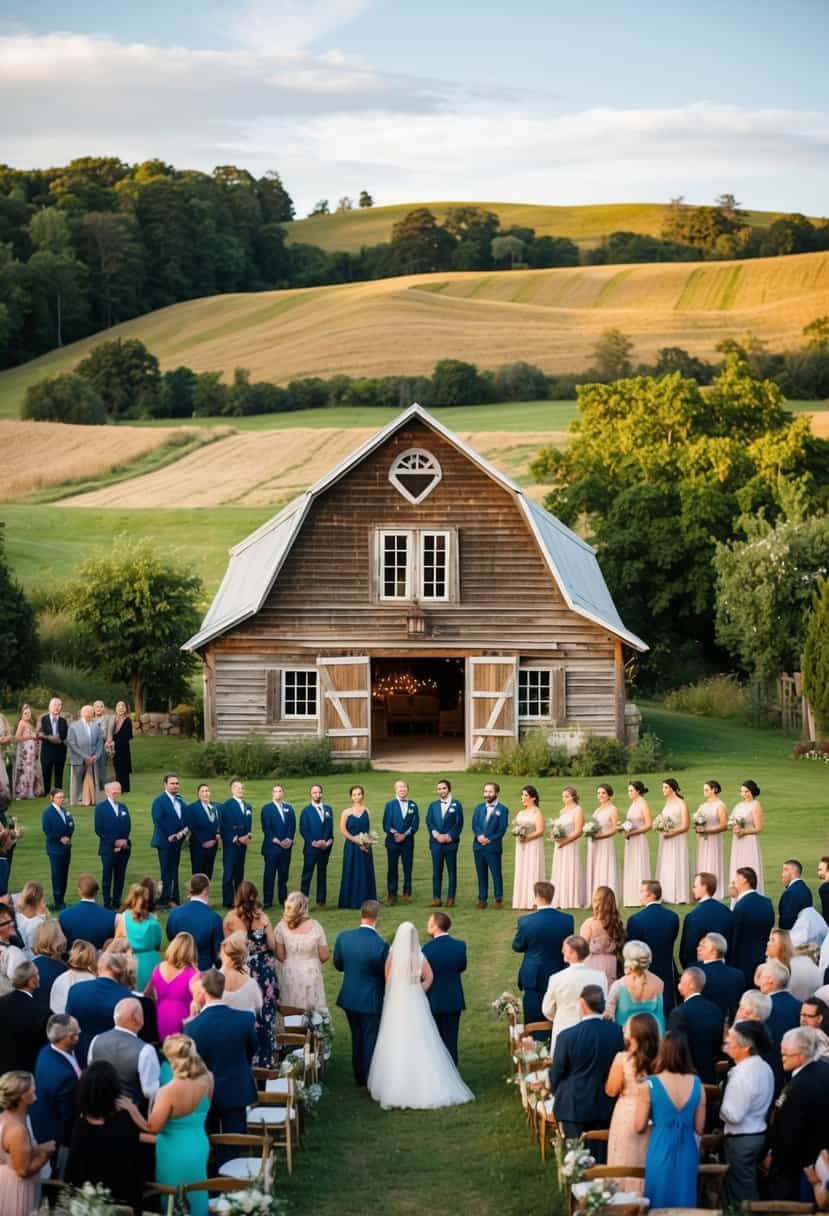
As you plan your special day, remember that the number of guests should reflect what feels right for you and your partner.
A medium-sized wedding of about 100 guests gives you the chance to interact with everyone and share memorable moments. It can also be a more budget-friendly option compared to a larger event, allowing you to allocate funds to other aspects of the wedding that mean the most to you.
If you’re still unsure, think about the kind of atmosphere you want to create. A wedding with 100 attendees offers flexibility in venue choice and easier coordination, making it an excellent choice for many couples. The key is to prioritize your happiness and the experience you want to provide for your guests.
Determining the Ideal Wedding Size
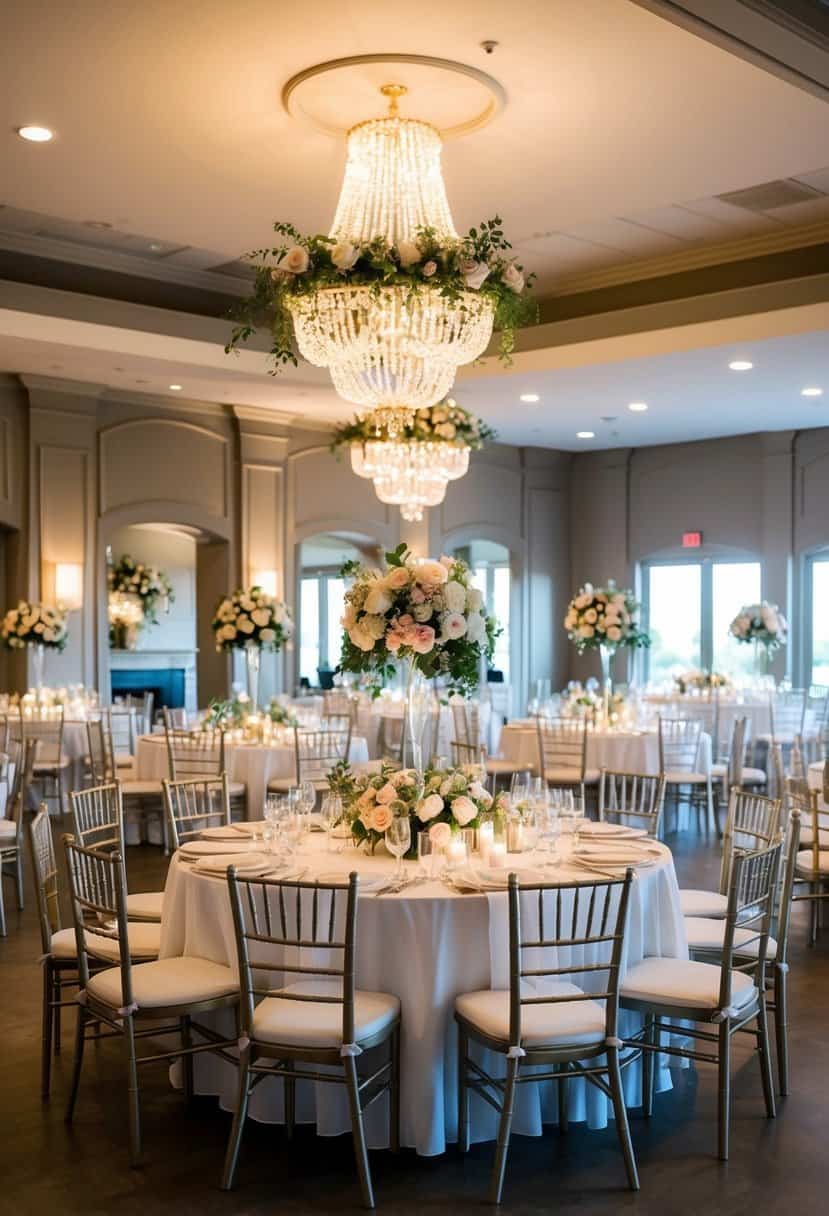
When choosing the ideal wedding size, think about how the guest count affects the wedding type and your budget.
Small weddings might feel more intimate, while larger ones usually have a different atmosphere. Consider expenses and how the number of guests will change your plans.
Analyzing Guest Count and Wedding Types
Deciding on a guest count can help you figure out what type of wedding you want.
A micro wedding fits up to 15 people and offers a cozy setting. A small wedding usually ranges up to 50 guests, while 51 to 150 makes it a medium wedding. Anything above that becomes a large wedding.
Each type brings a different ambiance. The smaller the wedding, the more personal it often feels. If you’re dreaming of an intimate and relaxed day, a smaller guest list might suit you best. Larger weddings can offer a more festive atmosphere, filled with energy and celebration.
Impact of Wedding Size on Budget and Expenses
Your wedding budget is closely tied to how many guests you invite.
Less people can mean reduced costs in areas like catering, venue size, and decorations. A smaller gathering may allow for more extravagant choices, as you’ll have fewer people to provide for.
On the flip side, hosting a larger group can increase costs quickly. Think about the average wedding size of 115 guests: a figure that provides a good balance for many couples. Budgeting wisely ensures your special day won’t lead to financial stress. Keep in mind that every detail adds up, so carefully planning guest numbers and expenses can make a big difference.
Planning Your Small Wedding
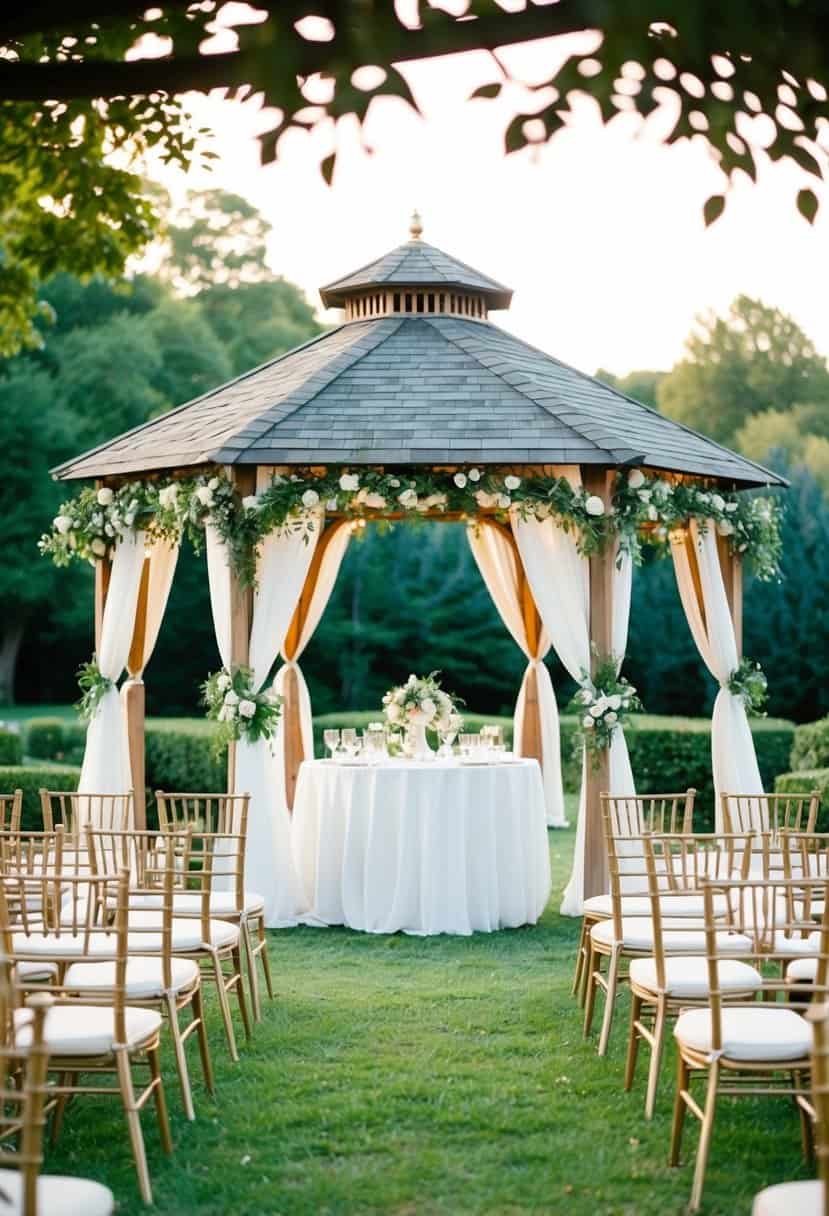
Planning a small wedding means you have the chance to focus on the details that matter most to you. This includes personal touches, a meaningful guest list, and unique venue choices. A small wedding offers opportunities for creativity and intimacy.
Creating the Guest List
When planning your guest list, start by listing the people closest to you. Think about who truly matters in your life and who you want to share your special day with.
A small wedding usually involves 50 to 100 guests, making intimate gatherings possible.
Prioritize family and close friends to keep the celebration personal. You can also make the process easier with a wedding planner, who can help you manage invitations and ensure you don’t miss anyone important. Consider relationship quality over quantity, as this will make your wedding feel more special. While it might be tough to limit numbers, a smaller group means you can provide a more memorable experience for everyone.
Choosing the Right Venue
Selecting the venue is a crucial step in your wedding planning. Small weddings allow you to consider unique locations that wouldn’t accommodate a larger crowd. Intimate settings like quaint gardens, historic homes, or even art galleries can make your day stand out.
Think about the style and atmosphere you want. A wedding planner can help match your vision to potential venues, ensuring the location reflects your personality as a couple. Also, consider the logistics, like weather and accessibility for guests. A cozy venue can create a warm and inviting space, perfect for a small wedding.
Opting for a Destination Wedding
A destination wedding lets you celebrate in a place that holds special meaning or offers a beautiful backdrop. This option can pair well with an intimate wedding since fewer guests can travel to the chosen location.
When planning a destination wedding, consider the travel and accommodation needs of your guest list. A wedding planner experienced in destination weddings can assist in coordinating these details. This option can turn your wedding into a vacation for all attendees, creating memorable experiences beyond the ceremony itself. Choose a spot that feels special to you, whether it’s a beach, mountain retreat, or charming foreign city.
Budgeting for Your Dream Day
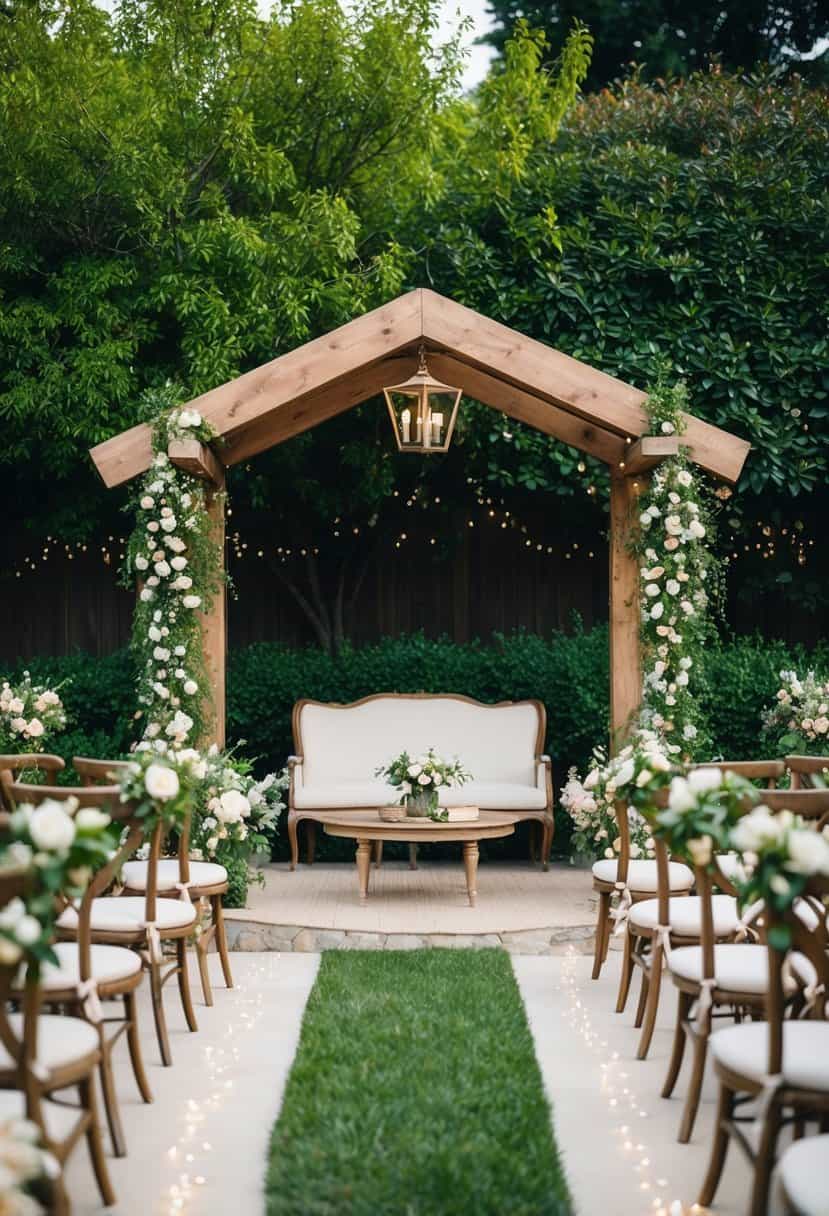
When planning a wedding, managing your expenses is crucial. For a 100-person celebration, it’s important to allocate resources wisely and make the most of your budget. From attire to meals, each choice can impact your wedding day.
Managing Wedding Expenses Effectively
Creating a clear budget is the first step. Separate your spending into categories like venue, catering, and attire.
For attire, couples typically spend around 7% of their budget on wedding dresses and suits. Be sure to include costs for shoes and accessories. Considering a more affordable venue or hosting your event during the off-peak season can save you money. Check out these budget wedding tips.
If you’re considering music and entertainment, expect to allocate about 10% of your budget for this. Having a detailed budget will help you keep track of expenses and prevent overspending.
Maximizing Your Budget
To get the most out of your budget, consider small wedding ideas that add personal touches without breaking the bank.
Shrinking your guest list can significantly reduce costs for food and drinks. This means more budget for other essentials like flowers or photography. Opt for multi-purpose decorations to save more.
Using venues that offer all-inclusive packages can help you manage costs more easily. Look for venues that provide everything from catering to decorations. This approach reduces stress and keeps your spending on track. Consider exploring these tips for planning on a budget. By focusing on key areas, you can create a memorable experience without overspending.
Creating a Meaningful Experience
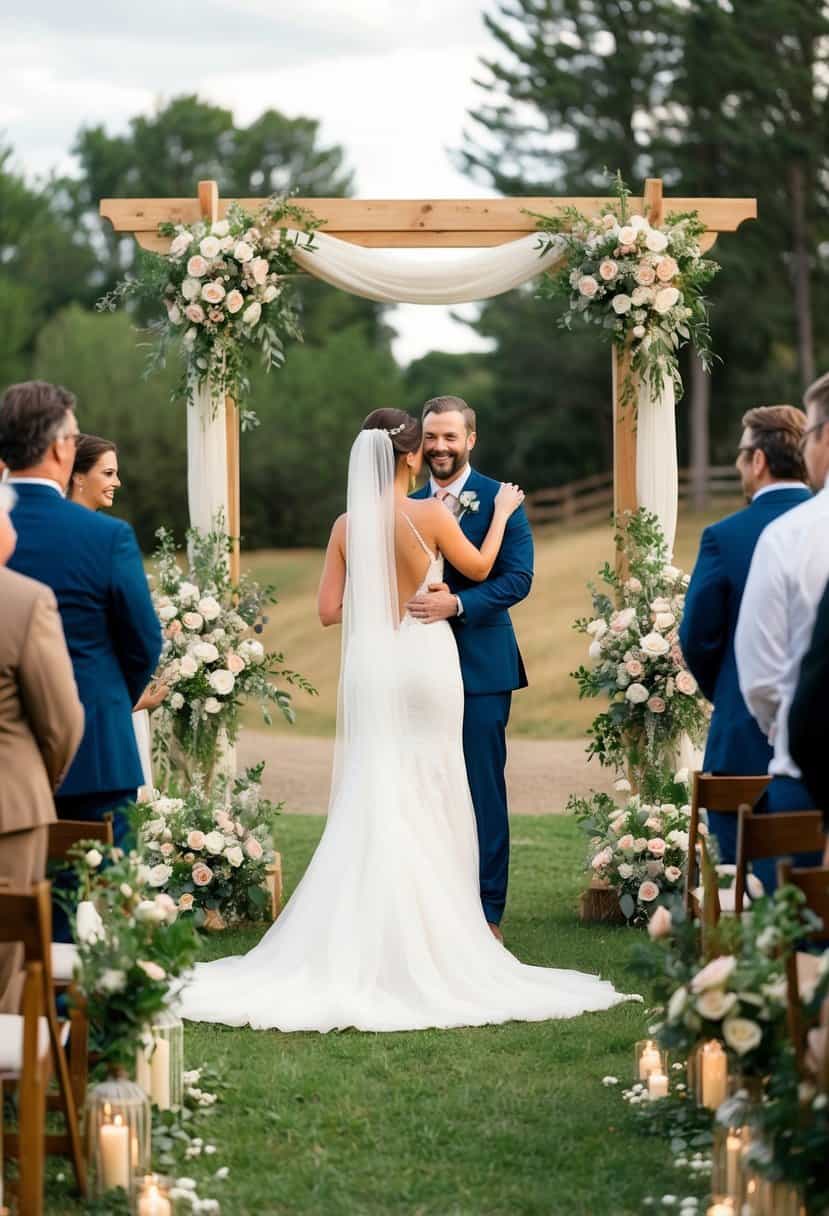
When planning a 100-person wedding, you have the chance to make your special day unique and memorable. Key strategies can help create intimate gatherings and ensure that everyone feels included and satisfied.
Personalizing Intimate Ceremonies
Personal touches make your wedding stand out. Choose a venue that resonates with you and reflects your story as a couple. This could be a cozy garden, a charming barn, or a historic venue that holds significance for you.
Consider writing your own vows to add a personal touch to your ceremony. Share stories or moments that illustrate your journey together. Including close family members or friends in the ceremony can also deepen the sense of connection, making it meaningful for everyone involved.
Decorate with personalized items such as custom signs or meaningful floral arrangements that showcase your style. Including elements like these helps create a welcoming atmosphere for your guests, turning your wedding into a truly memorable experience.
Ensuring Guest Satisfaction
Ensuring that your RSVPs are managed well is vital. Clear communication about the day’s schedule and any special instructions can make a big difference. This includes providing details on attire, transportation, and venue locations.
Create a comfortable atmosphere by offering a well-thought-out seating arrangement. This allows guests to easily interact with people they know or may enjoy meeting. Small details like personalized place cards can make every guest feel valued.
Include thoughtful touches such as a small welcome bag with essential items or local treats. Providing plenty of time for socializing, along with good food and entertainment, can keep your guests happy and engaged throughout your special day.
The Social Dynamics of Small Weddings
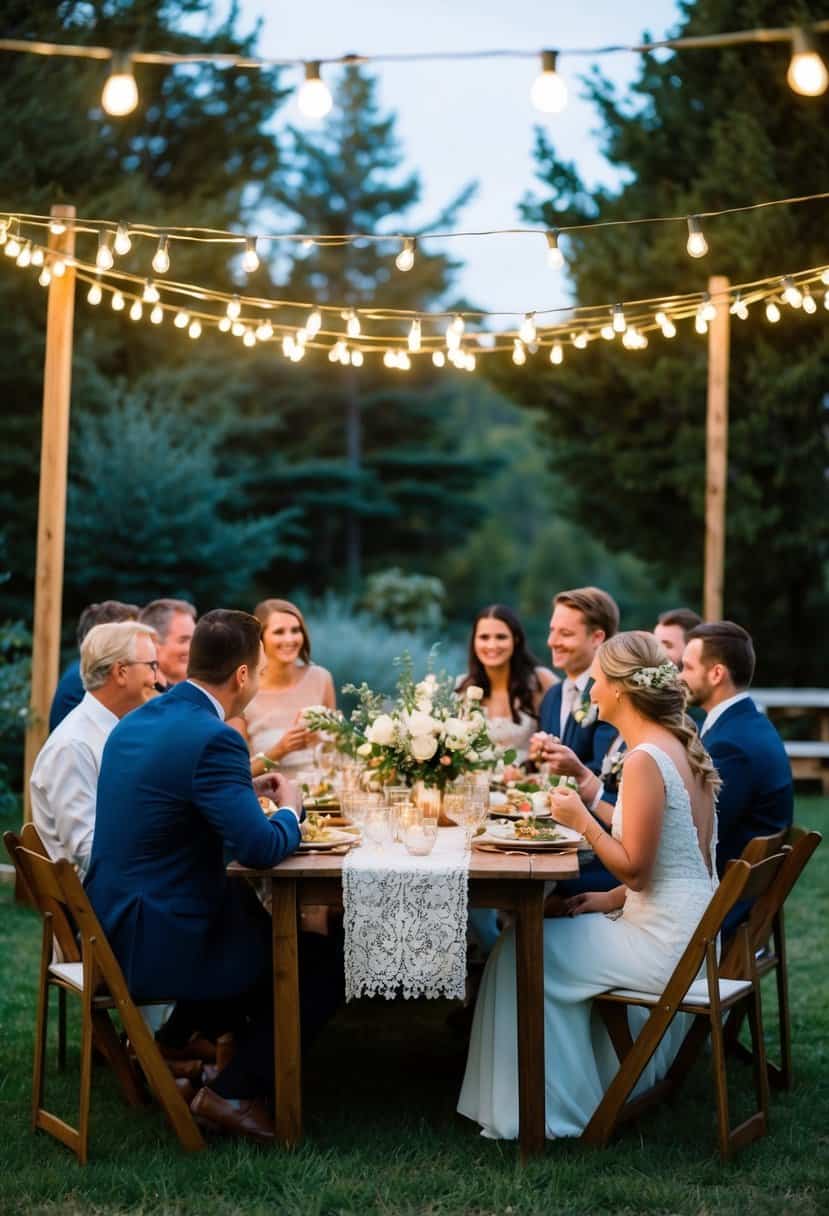
Planning a small wedding with around 100 guests can create a cozy and intimate atmosphere. This type of wedding encourages deeper connections and more meaningful interactions.
Navigating Family Expectations
When planning a small wedding, you might face challenges related to family expectations. Large families may feel disappointed if everyone they expect isn’t invited. It’s important to communicate openly and early. Explain your vision for an intimate ceremony and why it matters to you.
Consider setting up a guest list manager to organize and prioritize guests. This tool can help balance family obligations with personal preferences. Compromises are often needed. Perhaps invite close family to the ceremony and broader family or friends to a post-wedding celebration.
A real weddings study suggests that smaller guest counts often lead to more personal experiences. Keep this in mind when discussing with family.
Encouraging Interaction Between Guests
A smaller guest count allows you to focus on creating an inviting environment.
Plan activities that encourage guests to mingle. You can use ice breakers, team games, or a seating arrangement that mixes different groups to help people get to know each other.
Think about hosting events like a welcome dinner or post-wedding brunch. This way, guests can have more opportunities to connect.
Personal touches, such as writing individual notes for each guest or incorporating group songs or dances, can also foster a sense of togetherness.
For more ideas on making the most of a micro-wedding, check out this guide on micro-weddings.



